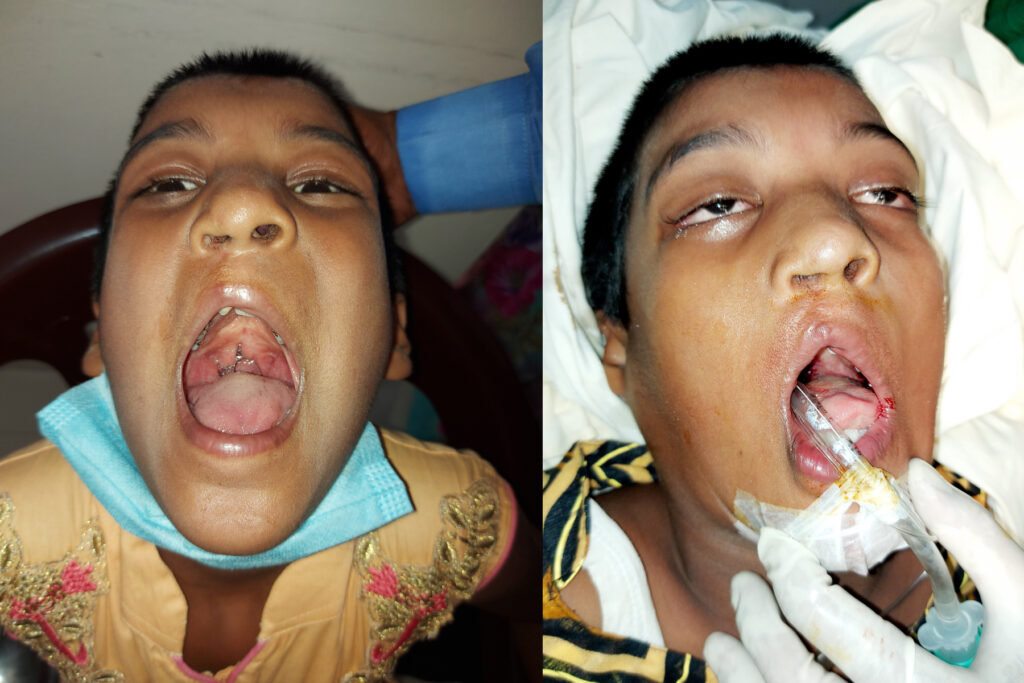Treatment of Cleft Lip & Palate

In most cases, the clefts can be repaired beginning within the first few months of life. A cleft palate team includes the following specialists: Plastic Surgeons, ENT Surgeons and Oral & Maxillofacial Surgeons who have been treated for cleft lip or palate and have had a different experience. Today, most people born with cleft palates have surgery to close the hole in the roof of the mouth and reconnect the palate muscles between 9 and 18 months of age. This lessens the effects of the cleft palate on their speech development. People with a complete cleft lip & palate will need several surgeries to repair the cleft. These include cleft lip repair, cleft palate repair, and a bone graft to the upper jaw to close the bone gap in the gum area. In some cases, further surgery may need to be done on the palate or in the throat to improve speech. People with cleft lip or palate may spend a lot of time at the Dental Specialist and Orthodontist when they’re kids. Hearing tests to check for hearing problems and speech therapy to improve speech skills and patterns are often part of treatment, too. Although most people have these surgeries during childhood, some may also have plastic surgery during the late teen and young adult years. People who have had cleft lip and palate repair surgery as kids may look flatter in the face. They may have jaws that are not properly aligned and may have difficulty breathing through the nose. Surgery may be required on the jaws and nose to improve the bite, breathing, and facial appearance. Surgery may improve scars from previous operations.
Dealing with Cleft Lip & Palate dealing with the physical side of cleft palate can be difficult enough. But there’s also the emotional side: Because cleft lip and palate are something a person is born with and has no control over, it can seem unfair. And because appearance can become more of a focal point during the teenage years, many people with cleft lip and palate worry about how it might affect their social and emotional lives. Teens with cleft lip and palate may have had to cope with bullying or teasing. For many people, this can play havoc with self-esteem. Others find that surviving bullying gives them an inner strength and resourcefulness that other teens may not have developed. Learning to take control over how much you allow physical appearance to affect your life is a skill that people with cleft lip and palate usually develop way before their peers.
